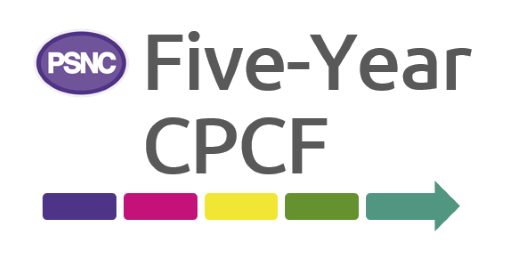Chief Executive’s blog: August 2021
By Chief Executive Simon Dukes
Contractors will by now have seen the arrangements for Year Three of the Community Pharmacy Contractual Framework (CPCF) Five-Year deal. PSNC’s Committee Members voted to accept these by an overwhelming majority on your behalf back in July, but we have only been able to communicate the details out to you in the last week or so because of the behind-the scenes machinations of HM Government and their internal processes which prevented us from doing so earlier. You will all have your own views on the Year Three deal, but let’s be clear: there are some good elements for all of the community pharmacy sector.
The protection of Transitional Payments will prove a lifeline as pharmacies battle with a declining income from dispensing while remunerated referrals from the NHS to the Community Pharmacist Consultation Service still struggle to materialise in meaningful numbers. The streamlining of the Pharmacy Quality Scheme (PQS) will ensure that those monies, too, are accessible to the vast majority of contractors. We also should not underestimate the benefits gained through PSNC’s efforts to make beneficial and pragmatic regulatory changes, as well as funding new services that our patients and the NHS really need (particularly hypertension case-finding, smoking cessation and the expansion of the New Medicine Service).
Over the past year we have secured financial arrangements which have enabled pharmacies to boost their income from outside the Global Sum as well: offering flu vaccinations; providing Test and Trace services as well as COVID-19 vaccinations; and delivering medicines to vulnerable people during waves of the pandemic. We have of course also enabled the payment of COVID-19 costs beyond the artificial cap of £120m that HM Treasury wanted to impose on the sector. Once NHSBSA have done their calculating, I hope in the coming weeks we will be able to say how vital that decision was for the sector’s post-pandemic survival.
But there is a key missing element to the Year Three deal: the lack of any uplift to core funding that we had all been fighting for. Despite a cogent and compelling business case, HM Treasury flatly rejected our bid for more money for the sector. This doesn’t mean we give up. Far from it. It is being picked-up in the ongoing CPCF Annual Review process. But it does mean that we need to work out why there is such a disconnect between the position of community pharmacy (as expressed by PSNC and other pharmacy bodies) and that of wider Government. We get lots of compliments from our paymasters, but not much else it seems.
It doesn’t help when GPs are feted with additional funding from the NHS to support PCN Clinical Directors and to help GPs reinforce connections with community pharmacy colleagues. Especially when similar requests made by PSNC to fund community pharmacy PCN leads from outside the contract sum were dismissed. In a world where GPs are in a strong position at a local and regional level (with guaranteed positions on ICS Boards for example), it is feels increasingly uncomfortable that community pharmacy is apparently being deliberately under-resourced and excluded from participating in a role it is uniquely placed to perform: contributing to all aspects of providing much-needed primary care to communities.
It is fantastic (and well overdue) that community pharmacy is playing an ever-greater role in the English healthcare system, but it genuinely worries me that the future of the role it can play and the speed with which the sector can transform in order to do so, is being held back by a lack of capacity interconnected with a lack of funding. As I look ahead, with significant growth of volumes of services expected, coupled with further inflation on costs, our capacity/funding squeeze will have consequences: significant closures are inevitable and thousands more pharmacies will be under greater pressure just to survive. This will of course impact the patients that use their local pharmacies let alone the health of the contractors and their employees that are working flat-out to serve them.
As negotiations begin in the autumn on Year Four of this CPCF, we will of course want to explore with NHS and DHSC colleagues what more community pharmacy can do on behalf of patients and the NHS. But without an increase to the core funding available to us, I struggle to see what more we can possibly do.








